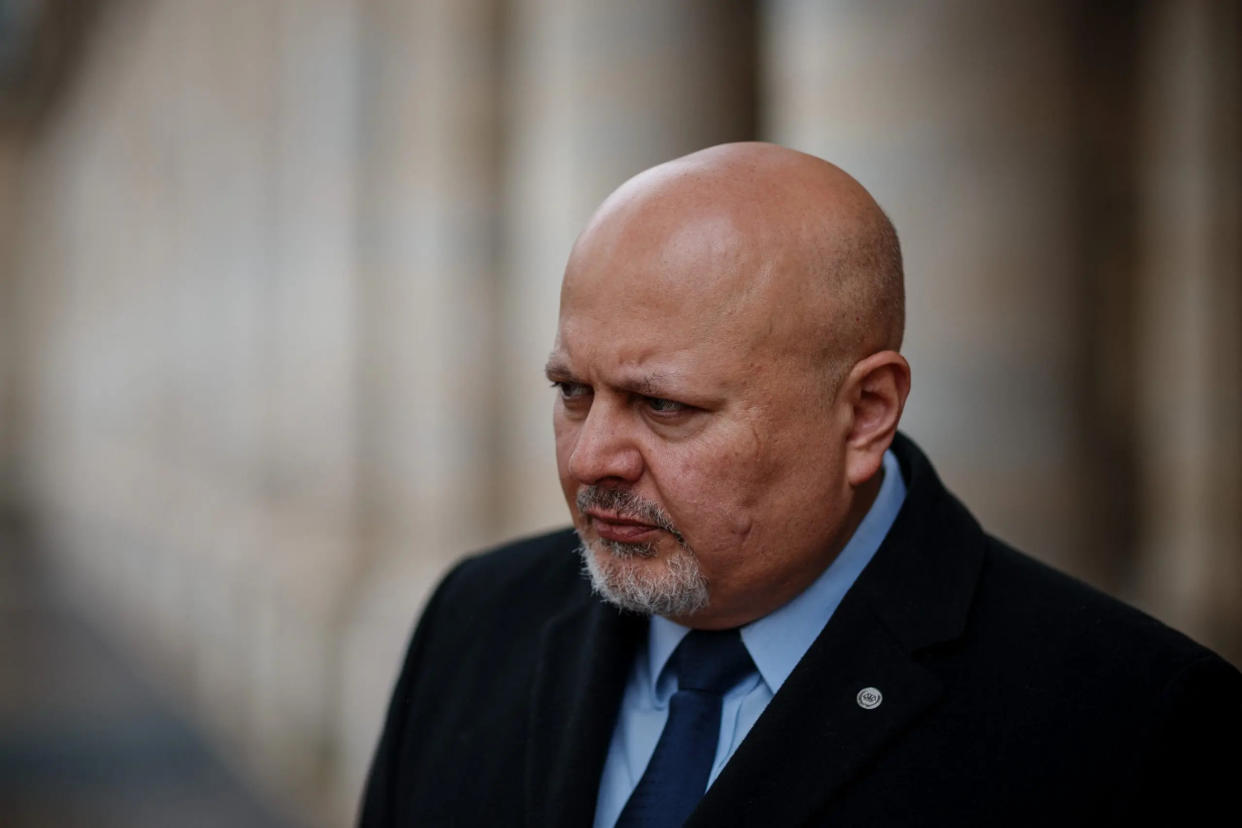Karim Khan, the prosecutor for the International Criminal Court (ICC), has stepped down temporarily as an external investigation into allegations of sexual misconduct proceeds. The decision came after mounting scrutiny and pressure from women’s rights organizations and media inquiries. The United Nations’ Office of Internal Oversight Services is overseeing the probe. Khan has denied any wrongdoing, stating through his legal team that the allegations are “categorically untrue” and that he is fully cooperating with the investigation.
Misconduct Claims And Israel Warrants Raise Concerns Over Timing And Prosecutorial Motivations
The allegations stem from an incident reported by two ICC employees last year, who said a colleague had confided in them about misconduct by Khan. The court’s internal watchdog reportedly interviewed the alleged victim but dropped the inquiry after she declined to file a formal complaint. Still, the watchdog recommended that Khan reduce contact with the woman involved to uphold the court’s integrity. The prosecutor’s decision to remain in office until now had drawn criticism from advocacy groups who viewed his position as untenable.

Khan’s announcement of arrest warrants for Israeli Prime Minister Benjamin Netanyahu, former Defense Minister Yoav Gallant, and three Hamas leaders for alleged war crimes occurred shortly after the misconduct allegations surfaced. Critics, including legal experts and media outlets like The Wall Street Journal, have speculated about whether Khan’s actions were an attempt to distract from or deflect the controversy. Notably, Khan canceled a scheduled trip to Israel and Gaza just before the warrant announcement, which some interpret as suspicious timing.
Khan Scandal Sparks Global Backlash And Questions About ICC Institutional Credibility And Integrity
The move to charge Israeli leaders has fueled a backlash, especially in the United States. Former President Donald Trump imposed sanctions on Khan earlier this year, further complicating the ICC’s operations. Critics argue that Khan’s scandal undermines the legitimacy of the case against Israel. Legal analyst Eugene Kontorovich claimed that the issue exposes deeper flaws in the ICC, suggesting the entire institution lacks accountability and calling for a complete overhaul, not just Khan’s removal.
Khan’s lawyers have defended the integrity of the prosecution process, emphasizing that ICC judges approved the arrest warrant applications, which indicates that sufficient legal thresholds were met. They categorically deny that the sexual misconduct allegations had any influence on his prosecutorial decisions. ICC spokesperson Fadi El-Abdallah refused to comment on whether the allegations will impact the pending arrest warrants, maintaining the court’s neutrality and referring misconduct queries to Khan’s team.
Beyond Khan’s individual case, broader criticism of the ICC has emerged. Figures like Hillel Neuer of UN Watch argue that Khan’s scandal is symptomatic of a politicized and fundamentally flawed institution. Neuer accused ICC leadership of scapegoating Khan to protect the court’s broader campaign against Israel. Others have echoed calls for the institution to be reevaluated or even dismantled due to its minimal track record of convictions and apparent susceptibility to political agendas.


